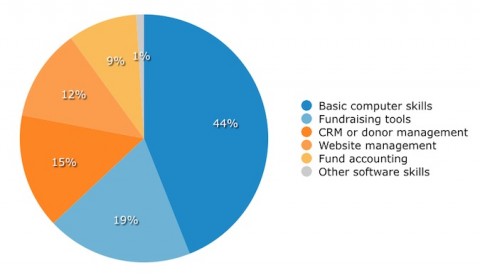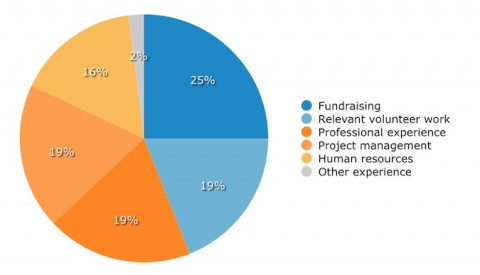
Have you heard these stereotypes about the millennial generation?
Narcissistic, selfie-taking, technology-obsessive, materialistic, lazy, text-happy, socially-challenged.
These generalizations overwhelm the generation born between the early 1980s and early 2000s. Hand them a smartphone, tablet, laptop or any other piece of technology and they can do their taxes, buy a new wardrobe, get in touch with all of their friends, order dinner and finish up that report for work in seemingly no time at all.
It’s true that the millennial generation differs from all other generations in significant ways. They are tech-savvy, they insist on instant gratification and results, they’re more educated than any other generation, they have the ability to work from anywhere and they are extremely plugged in. And while it may seem like the millennials are tainting the workplaces that we know and love, they are actually making a significant impact in the nonprofit sector.
According to the 2014 study by Deloitte, 63 percent of millennials donate to charities and 43 percent actively volunteer or are members of a community organization or nonprofit. Millennials are growing up, entering the workforce and becoming active in their communities, and they bring a set of skills that generations before them do not possess.
So, the question arises: As a nonprofit organization, how can you better engage and reach this generation? According to research conducted by fundraising technology consulting firm Software Advice, millennials should not just be donating and volunteering, but they should also be given the opportunity to enter into nonprofit leadership positions, specifically on the organization’s Board of Directors.
Technology is becoming increasingly more important in the nonprofit sector as organizations set out to reach younger generations who are constantly tuned in to Facebook, Twitter, email and Instagram. Because of this, market researcher Janna Finch believes that having millennials on the Board is a great way to take advantage of technology.
"The millennial generation has been raised in a connected world and because of it, its members are more in-tune with technology than previous generations,” Finch said. “Furthermore, BoardSource says 43 percent of nonprofit board members are between ages 50 and 64, so the unique ways millennials view and use technology alone is a tremendous asset for any organization searching for the best ways to leverage it. Nonprofits are so thirsty for people with technology know-how that financial giving exemptions are sometimes offered as onboarding incentives."
Software Advice conducted a survey of 1,500 nonprofit professionals and found that the most important tech skill that nonprofit boards look for when recruiting new members is basic computer literacy.
 Additionally, 55 percent of respondents concluded that knowledge of specialized software is also essential, with 19 percent citing fundraising software, 15 percent chose customer relationship management (CRM) or donor management software, 12 percent said website management and nine percent chose fund accounting.
Additionally, 55 percent of respondents concluded that knowledge of specialized software is also essential, with 19 percent citing fundraising software, 15 percent chose customer relationship management (CRM) or donor management software, 12 percent said website management and nine percent chose fund accounting.
As well as these tech skills, fundraising experience was the most cited professional skill desired by board members. With nearly half of all millennials serving as active volunteers, many are likely to possess this desired skill and exercise it as a board member.
 Finch believes that millennials’ dependence on technology and ability to be constantly plugged-in makes them ideal candidates for nonprofit boards.
Finch believes that millennials’ dependence on technology and ability to be constantly plugged-in makes them ideal candidates for nonprofit boards.
"Look around any public space and you'll notice this generation buried in their phones,” she said. “To their older counterparts, this looks like a severe case of ‘disconnection,’ but it is the opposite that is true. Millennials are connecting with others and maintaining relationships through technology, often with a very large circle of friends. Those communication skills are very useful for informing less traditional methods of fundraising--like crowd-funded campaigns--and the technologies that support them. This greater connectedness also makes it possible to get the word out about events."
So, while millennials may have their noses buried in an e-reader instead of a paperback book, the research shows that it is this tech-savvy trait that nonprofit boards are looking for. The ability to get results in an instant, to connect with people all over the world, to quickly learn and be able to utilize new software and technology—these are the skills that millennials can bring to the table.
